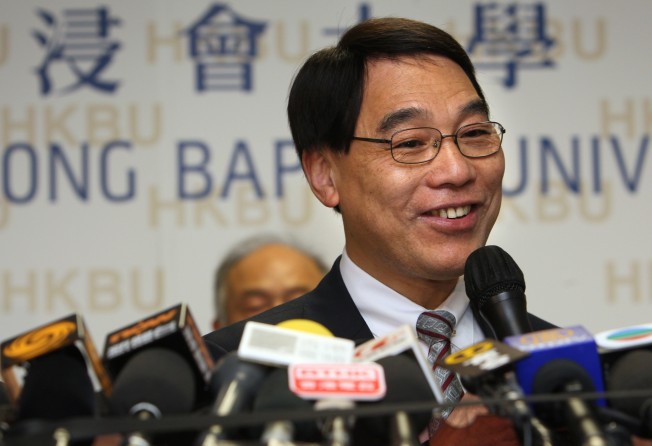Who's watching the government appointees of Hong Kong's quasi-public bodies?
Philip Yeung says these council chairmen should be assessed on performance to prevent abuse

There is a joke going around local university campuses. A mainland academic asked his Hong Kong counterpart: " Why do you have a council chairman when you already have a president?" The local wag replied: "Our council chairman is like your party secretary." The mainland visitor nodded knowingly.
True or false, this outsized role of the chairman of the university, or indeed of any quasi-public organisation, such as the Airport Authority or the stock exchange, has rarely, if ever, come under the spotlight.
Recently, a member of the Hong Kong Council for Accreditation of Academic and Vocational Qualifications posed this question to the head of a local tertiary institution: "The chairman oversees the president. But who oversees the chairman ?" The simple answer is "nobody". The chairman, surrounded by his own hand-picked council members, is king. Therein lurks the danger.
Immune to scrutiny, the chairman is free to define his own role. How he behaves depends largely on his temperament and ego. Appointed by the chief executive for a three-year term and serving at his pleasure, he is usually reappointed to a second term, if he doesn't ruffle any political feathers.
But six years is a long time in the life of any institution that is a work in progress.
Chief executives like to tap the big three professions - law, accounting and medicine - for candidates. Most appointees behave with decorum towards the president. But beware the chairman with a big ego and time to kill - a superannuated professional who sees the institution as his lengthened shadow.
He can make life hellish for the president, harassing him constantly. Sometimes, it is intensified by a cultural clash, when bean-counting accountants try to impose their will on academia.
One chairman, a famous number cruncher, now deceased, shocked an internationally respected university president with this impudent, rhetorical question : "Of what use is a Nobel Prize?"
Chairmen like these know the price of everything but the value of nothing. This one rewrote the president's job description and restructured the university's governance structure, in a blatant abuse of authority.
A notorious case of an open conflict between the chairman and president occurred at the Hong Kong Institute of Education. It eventually went to litigation. Both sides were losers, with the chairman accused of being a stooge for the permanent secretary of education while the president left his beloved Hong Kong heartbroken.
The most recent case concerns the fate of the president of Baptist University, Professor Albert Chan Sun-chi, over his very public battle to win the parcel of land vacated by the Institute of Vocational Education.
In this highly charged fight, the university made the fatal error of leaving the president politically exposed.
Goaded by vocal students, Chan had boldly declared that he would resign if the university lost out. With the government at first determined to rezone the land for residential purposes, his fate was apparently sealed, and he said he would step down this year.
Chan was in the headlines again for taking a principled and public stand against student activists bent on hijacking graduation ceremonies. Going against the grain of prevailing student opinion took courage.
By all accounts, he is a good president who fathered the university's Institute of Creativity, donated money to the university and turned over the president's residence for the university's communal use. But he was unfairly painted into a corner. The truth is that he is not remotely anti-Leung Chun-ying. He is merely pro-Baptist University.
Now that the Town Planning Board has refused the rezoning application for the site, the reason for his early departure has evaporated; the university's council should reverse its decision to accept his request for non-reappointment.
Most university presidents serve out two terms, if they don't rock the boat. A one-term president is almost a proclamation of failure. This apolitical, self-effacing and effective leader doesn't deserve to be a one-term president.
In recent protests, students naively clamoured for the right to pick their president when they should be fighting for the right to vet the appointment of the council chairman, who should be subject to a performance review upon completion of his first term in office.
A good chairman should heed the biblical injunction: give to Caesar what belongs to Caesar.
The corporate tail shouldn't wag the academic dog.
The multifaceted role of university president is difficult enough without being second-guessed by a meddlesome chairman who, ideally, should wear his authority lightly. And he should be a gentle guide, not an overbearing driver.
Philip Yeung is a former speechwriter to the president of Hong Kong University of Science and Technology. [email protected]